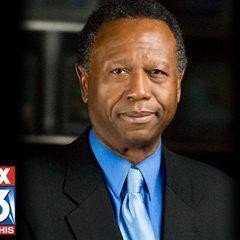Call me skeptical, but I think it’s really time for Memphis to move on from the Ebola “crisis” to issues that are more based in reality. We are very unlikely to be hit by an epidemic of what is no doubt a dreadful disease if you’re living in or have visited three countries in West Africa recently.

But the one lone Ebola-related story I’ve covered did open my eyes to the precautions the Shelby County Health Department and the Office of Preparedness have been taking to assure the safety of our citizens. Since the 9-11 attacks, local government agencies have worked diligently to organize a program of preparedness to deal with catastrophic natural disasters and health epidemics — from swine flu to SARS to the one-in-a-million possibility of an Ebola outbreak in the Bluff City. Such advance planning should be commended.
But it’s time to bring the same level of attention to a more relevant crisis — student truancy — and the direct connection it has to our problems with youth violence.
As Shelby County Schools Superintendent Dorsey Hopson asserted two weeks ago in an interview with Fox 13, he stands prepared to tackle the truancy issue by withholding financial benefits from parents who have consistently failed to meet their responsibilities in getting their children to school. He admitted punitive action is not a road he wants to go down, but he’s also realistic enough to know he’s got to have the legal backing and the political will of those in government to take a proactive stance.
Within the past two weeks, SCS has finally begun getting a numerical grasp on the atrocious situation of children not showing up in the classroom this year. They estimated the number, peaking at the start of the school year in August, to be around 9,000 students. By late September, nearly 4,000 students had met or exceeded the five-day threshold of unexcused absences. If reported to the district attorney’s office, parents of these children could presumably face fines and possible jail time. So far, only one person has been prosecuted under that standard, but it’s not like student truancy is a new problem.
Just two years ago, the legacy Memphis City Schools system was lauded for creating truancy assessment centers where truants were picked up by police and, together with their parents, made to work with school officials to find ways of getting them back to school. Because of budget cuts, that program no longer exists. Perhaps, if the city of Memphis, as cash-strapped as it may be, could start paying on the $57 million that two court rulings have explicitly made clear is owed to SCS, there would be enough money to restart and expand that now-defunct program.
Here’s where we get back to that idea of “preparedness.” We have for a decade and beyond known this city and county have a propensity for failing to meet the minimal educational needs of all its students. We have never had the foresight to devise a comprehensive plan that puts more money into all aspects of education than we consistently put into the penal system or into security measures aimed at dealing with possible health epidemics and natural catastrophes. Yet, there seems to be no concerted effort to address and follow through on tough choices that could bring real results in saving generations of children who continue to fall through the cracks in our educational system.
It may well be time to get behind Hopson’s idea of making parents financially accountable for not meeting their responsibilities, time to stand behind the line he wants to draw in the sand. Instead of pitying those parents for their negligence, because they’re not informed about the avenues of help available to them, we should insist and demand they take the time to find out for themselves. We should insist they show up at a parent/teacher conference, a PTA meeting, or even a school board meeting. They owe it to the future of their own families to do so, just like every other forward-thinking person in this country. I’ll predict right now nobody in Memphis is going to die from Ebola. But, there’s a good chance we’ll perish from the disease of neglecting the education of our children.








